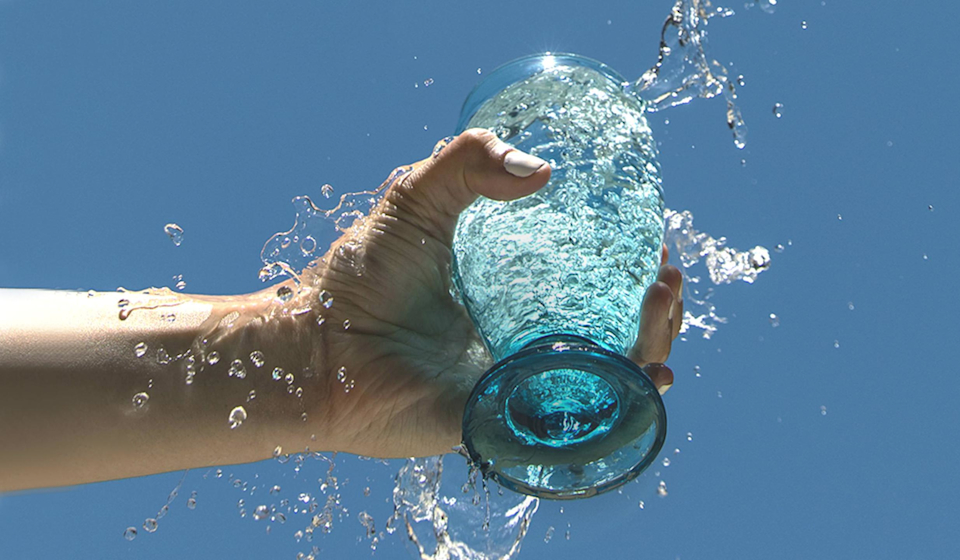Essential Takeaways
- While many of us know how important it is to stay hydrated, sometimes drinking enough water is easier said than done.
- But in order to build the habit, we think it's a good idea to do some myth-busting around the science of drinking water. For example, did you know that the "8 cups a day" rule is kind of BS?*
It's time we got a little friendlier with H2O, don't you think? Most of us know, after all, that we're primarily made of water—to be precise, it makes up roughly 60% of our body weight. That means that every cell, tissue, and organ count on it to function properly.
But if we're well aware of the importance of water, why does staying hydrated feel like a chore for so many of us, especially when it's one of the simplest yet crucial things we can do for our health on a daily basis? Here at Ritual HQ, we believe that the foundation of any positive habit is understanding the science behind it—so let's start with some fact-checking around hydration, shall we?












